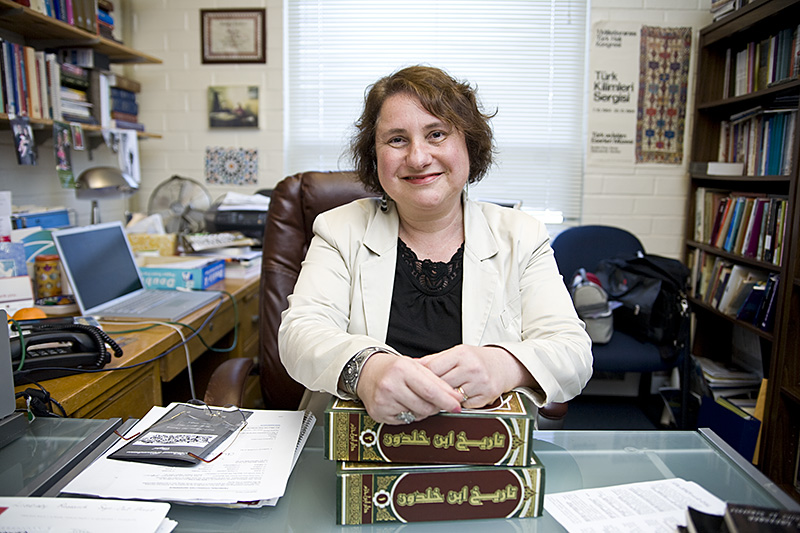Professor Judith Rood has implemented Biola’s first Holocaust Awareness Week, with the help of one of her classes. Every third semester, Rood teaches a Jewish/Christian/Muslim relations class.
This semester’s class is particularly special, because they have played a large role in planning and executing the Awareness Week. In Rood’s eyes, this has been a long time coming.
Rood motivated by personal Holocaust story
As a professing Christian of Jewish descent, Rood has a personal Holocaust story.
“My great-grandparents perished there [at Theresienstadt concentration camp],” Rood said. This rich personal history has driven Rood to study the ancestry of Jewish Christians today.
“Biola has a tremendous commitment to Jewish studies,” Rood said. “[However] there has never been a Holocaust commemoration.”
She began her career at Biola eight years ago, after receiving her Ph.D. in modern Middle Eastern history from the University of Chicago. She received her master’s in Arab studies from Georgetown University and her bachelor’s at New College of Florida. After completing undergraduate and graduate work at Hebrew University in Jerusalem.
Rood following personal calling
Rood has not come to Southern California to live a comfortable life, but to dedicate her life to serve this community to which she has been called.
“God is using me to teach this generation,” Rood said. “I am here for such a time as this, like Esther.”
She has dreams of creating a complete curriculum based on an integration project to serve the community, and has worked toward more and more integration of diversity as a faculty member.
Event continues multicultural conversation
In this season, Biola is in the midst of a great conversation about diversity and multiculturalism.
“Jews and Gentiles must be present,” Rood said.
In the spring of 2010, Rood took a semester-long sabbatical.
“I went to Bethlehem for about a month, lived and traveled around with an editor of a major Christian magazine,” Rood said. “I then went to the University of Portland.”
This sabbatical served as a catalyst for Rood’s career not only as a professor at Biola, but as a learned scholar who seeks to further her research and publish her own writings.
Rood’s new book to address Christian Muslim relations
Rood is not afraid of controversial topics and will not leave them lying under the surface of this community any longer.
Rood has begun working on her book titled, “Loving God and Neighbor Together: A Christian Response to A Common Word Between Us and You.” It is about Christians and Muslims living peaceably together.
“This is a working manuscript,” Rood said as she described the book she hopes to get published soon.
After the Sept. 11 attacks, the relationship between Christians and Muslims has become a sensitive topic in many circles, but Rood has a passion to get to the heart of the issues at hand and seek reconciliation where it may be found.
Living as Christians in a multi-faith world
There is a conversation in Christian circles about what it looks like to live in a multi-faith world. Christianity Today’s article entitled “Proselytizing in a Multi-Faith World: Why mutual respect and tolerance require us to witness for Christ” by Ed Stetzer is one of the best summaries, according to Rood.
Stetzer addresses the controversial terms “interfaith” and “multi-faith,” and gives much-needed definition to both.
“Many of those involved in interfaith dialogue approach it as if there are no fundamental distinctions or differences between [their religions],” Stetzer wrote.
“By way of contrast, in a multi-faith world, we recognize that we are not worshipping the same God or gods, nor are we pursuing the same goals.”
The article goes on to say that even in the midst of different beliefs, respect and the willingness to live together with those who hold different views will prevent constant conflict.







